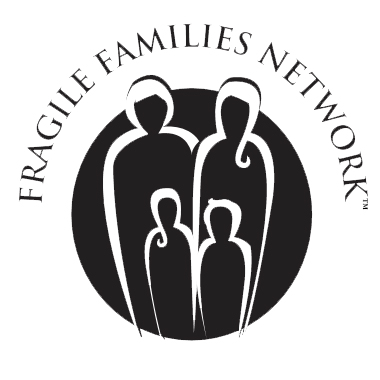Professional Awareness: Educating Health and Human Service Professionals About Grandfamilies

Grandfamilies, where grandparents or other family members take on the primary caregiving role for children and youth or relatives unable to parent, are a growing demographic in the United States. These families often arise out of necessity due to crises such as the death, disability, or substance abuse of the children’s parents. Despite their prevalence and importance, grandfamilies frequently encounter unique challenges and have distinct needs that are often misunderstood or overlooked by health and human service professionals. Addressing this knowledge gap is crucial for providing effective support and services to these families. This is the mission of the Fragile Families NETWORK: to educate professionals about grandfamilies, ensuring that their unique needs, experiences, and challenges are recognized and met.
Understanding the Complexity of Grandfamilies
Grandfamilies differ from traditional family structures in several key ways, each of which presents specific challenges:
- Legal and Financial Issues: Many grandfamilies operate without formal legal arrangements, which can complicate access to essential services such as healthcare, education, and financial support. Understanding the legal nuances and providing appropriate guidance and resources can significantly aid these families.
- Emotional and Psychological Stress: The circumstances that lead to the formation of grandfamilies—such as parental death, disability, or substance abuse—are often traumatic. Both caregivers and children may experience significant emotional and psychological stress, requiring tailored mental health support.
- Health Concerns: Grandparent caregivers, in particular, may face their own health challenges while simultaneously caring for young children. Health professionals need to be aware of the dual caregiving and health maintenance responsibilities these individuals carry.
- Educational Support: Children in grandfamilies may face academic and social challenges due to their unique family situations. Educators and social workers must be equipped to address these needs effectively.
The Mission of the Fragile Families NETWORK
The Fragile Families NETWORK is dedicated to bridging the knowledge gap among health and human service professionals regarding grandfamilies. Their mission encompasses several core objectives:
- Awareness and Education: The NETWORK aims to raise awareness about the prevalence and characteristics of grandfamilies. By educating professionals about the formation, challenges, and strengths of these families, the NETWORK seeks to foster a more informed and empathetic approach to service provision.
- Training and Resources: Providing targeted training sessions and resources is a key component of the NETWORK’s mission. These educational tools help professionals understand the legal, financial, emotional, and health-related aspects of grandfamilies, enabling them to offer more effective support.
- Advocacy and Policy Influence: The NETWORK advocates for policies that recognize and address the unique needs of grandfamilies. By influencing policy at local, state, and national levels, the NETWORK strives to create a more supportive environment for these families.
- Support Networks and Collaboration: Building strong support networks and fostering collaboration among various service providers is crucial. The NETWORK facilitates connections between professionals, organizations, and grandfamilies to ensure a holistic and coordinated approach to care.
The Importance of Educating Professionals
Educating health and human service professionals about grandfamilies is vital for several reasons:
- Improved Service Delivery: Professionals who are knowledgeable about grandfamilies can provide more tailored and effective services, addressing specific needs and challenges.
- Enhanced Empathy and Understanding: Education fosters empathy and a deeper understanding of the unique experiences of grandfamilies, leading to more compassionate and supportive interactions.
- Increased Access to Resources: Informed professionals can better guide grandfamilies to appropriate resources, whether legal, financial, educational, or health-related.
- Strengthened Family Resilience: By addressing the comprehensive needs of grandfamilies, professionals can help strengthen the resilience and stability of these families, promoting better outcomes for both caregivers and children.
Implementing Effective Education Strategies
To achieve these goals, the Fragile Families NETWORK employs several strategies:
- Workshops and Seminars: Offering regular workshops and seminars for health and human service professionals to discuss the latest research, best practices, and case studies related to grandfamilies.
- Online Resources and Training Modules: Developing and distributing online resources, including training modules, webinars, and informational guides, to reach a broader audience of professionals.
- Collaborative Partnerships: Partnering with universities, healthcare institutions, and social service agencies to integrate education about grandfamilies into existing professional development programs.
- Research and Data Collection: Conducting research to gather data on the experiences and needs of grandfamilies, using this information to inform educational content and advocacy efforts.
Educating health and human service professionals about grandfamilies is essential for understanding and addressing the unique needs, experiences, and challenges these families face. The Fragile Families NETWORK is at the forefront of this mission, working to raise awareness, provide training and resources, advocate for supportive policies, and foster collaboration among service providers. By equipping professionals with the knowledge and tools they need, the NETWORK aims to ensure that grandfamilies receive the comprehensive support and services they deserve, ultimately promoting their resilience and well-being.
©2024 Fragile Families NETWORK







